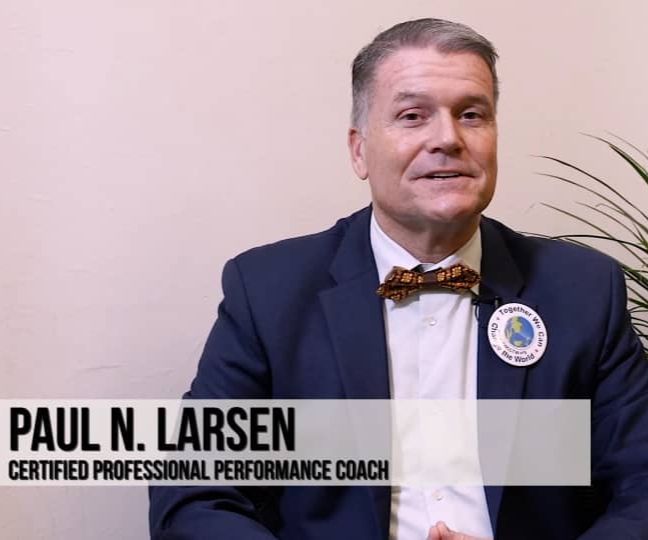How You Can Master The Art Of Negotiation Through Effective Persuasion

From something small like getting your child to eat his/her breakfast to securing a big project with a client, negotiation plays a vital role in our communication. With or without realising, we are negotiating every day in our lives. Therefore, it’s imperative for one to have basic negotiation skills.
In any disagreement, individuals understandably aim to achieve the best possible outcome for their position (or perhaps an organisation they represent). However, the principles of fairness, seeking mutual benefit and maintaining a relationship are the keys to a successful outcome.
Listen to its corresponding podcast:
5 fundamental rules of negotiation
1. Everything is negotiable
People have the general misconception that negotiating means coming up with a final price for something. In fact, there are many aspects that can and should be negotiated, such as exchanging a warranty for a product, payment terms, ancillary items and many others. Having more options gives you higher chances of coming to an amicable agreement.
2. Be honest and fair
Winning a negotiation doesn’t require you to be mean or manipulative. People should treat others like how they want to be treated, and honesty breeds honesty. Manipulation may win in a negotiation but you risk burning bridges or wreaking your reputation at the end of it.
3. Communicate openly
When negotiating, always communicate openly so that each party knows what the other is looking for. Negotiation is a give and take process and for it to be successful, the parties need to articulate what they really want to achieve in the process.
At times, negotiators tend to get frustrated easily and this complicates the negotiation process. Overcome this by taking a break before resuming the negotiation with different viewpoints.
4. Be pleasant and optimistic
Except for few extreme cases where parties can’t come to an agreement, most negotiations end diplomatically with desirable results when parties come with an open mind and many options. The key to obtaining good end results to for both parties is to think of negotiation as a win–win rather than a win–lose process.
5. Be well prepared
Preparation is the key to success. The person who is best prepared is the one who gets what he/she wants from a negotiation. To prepare, you need to learn the facts of the situation, gather data and find out what the other party’s wants and needs are. Remember, information is key!

The negotiation process
To achieve the best outcome in a negotiation, a well-structured approach with a proper process must be adopted:
Preparation and planning
Preparation and planning is the first step in a negotiation process. Choosing the right venue is an important factor as it ensures that both parties are at ease.During preparation, both parties will gather data and pertinent information to ensure that the negotiation happens smoothly.Information is a powerful tool as it adds validity to claims.All parties in a negotiation should investigate the other party to know their background and strong points. This would enable parties to understand each other better and forecast the decisions of the other parties in the negotiation.Preparing and planning will help to avoid conflicts in the cause of a disagreement and will save time during the meeting.
Definition of ground rules
Once planning and preparation are done, defining the ground rules is the next step in a negotiation. This is where rules, regulations and procedures are established and communicated to all parties before the negotiation. Aspects to be considered include:Where is the venue for the negotiation?
Will there be any time constraints?
- Will any issues that are off limits arise?
- What will happen if an agreement is not established at the end of the negotiation?
- Parties in the negotiation should also list any other ground rules deemed fit or necessary. Usually, it is in this phase that each party will state their initial requests and proposals.
Clarification and justification
Once the rules and procedures have been established, a discussion will need to take place to determine the position of all the parties in the negotiation. Each party will need to give an explanation to justify their requests and stance.This part is crucial as it gives the opportunity for each party to explain, clarify and educate the other party on their issues and why it is important for their requests to be met.At this phase, each party needs to be clear on what they want to communicate, as well as to have strong reasons to back up their requests. Communication plays an important role. Speak up clearly and confidently to relay your message and requests.
Bargaining and solving
This phase is the essence of the negotiation process as parties will give and take in to establish an agreement which benefits all or majority of them.At the end of the day, all parties in a negotiation want to ensure that they have gained something positive or valuable from the process with their views and needs taken into consideration.Parties need to be diplomatic with each other to address any issues or complications professionally. It is at this phase that all parties will make definite concessions.
Closure and implementation
The final step of the process is when an agreement from the negotiation has been formalised and procedures for implementing the agreement are developed. In major negotiations, these agreements will be stated in a lawfully binding formal contract.
Concluding thoughts
From interacting with family and friends to acquiring billion dollar projects, negotiation exists. The art of negotiation is a skill that you have to master to ensure that you are always a step ahead in acquiring the best desirable outcome in a diplomatic manner.
Functional
Tags: Emerging Leadership, Executing Leadership, Competence, Parenting & Leadership





